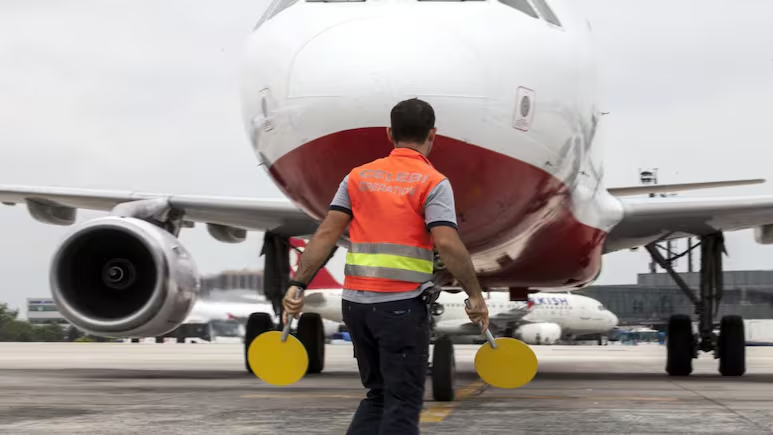India revokes Celebi Aviation’s security clearance—On May 15, 2025, the Indian government revoked the security clearance of Turkish ground handling firm Celebi Airport Services India Pvt Ltd. The action was taken due to national security concerns. The Bureau of Civil Aviation Security (BCAS) issued the order, which halted Celebi’s operations at nine major airports, including Delhi, Mumbai, and Bengaluru.
Background of the Decision: India revokes Celebi Aviation’s security clearance
The revocation follows rising tensions between India and Turkey. Turkey recently supported Pakistan during India’s Operation Sindoor. Reports claim Turkey provided military drones that were later used in attacks against India on May 8. This development increased India’s security concerns.
Impact on Airport Operations
Celebi has been active in India since 2008. It handled more than 58,000 flights and over 540,000 tonnes of cargo each year. The company operated at key airports, including Indira Gandhi International Airport and Chhatrapati Shivaji Maharaj International Airport. With its clearance revoked, airport authorities must now find alternatives to avoid disruptions.
Also read: 5.2 Magnitude Earthquake Jolts Turkey’s Konya Region
Political and Public Reactions
Several political leaders welcomed the decision. Shiv Sena had earlier demanded Celebi’s removal from Mumbai airport. The party accused Turkey of supporting Pakistan and claimed Celebi had indirect links to hostile interests. Murji Patel, Shiv Sena MLA from Andheri East, led protests urging the airport authorities to end the company’s contract.
Broader Implications: India revokes Celebi Aviation’s security clearance
The move shows India’s firm stance on national security. It also signals tighter scrutiny of foreign firms operating within sensitive sectors. This action may lead global companies to reassess their operations and political alignments in the Indian market.
As this situation unfolds, aviation stakeholders and international investors will closely track its impact. The government’s decision reinforces the importance of security-first policies in critical infrastructure sectors.



